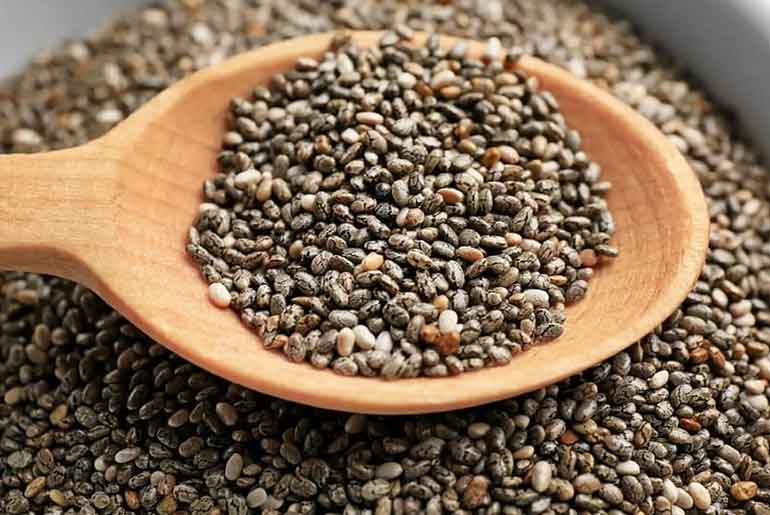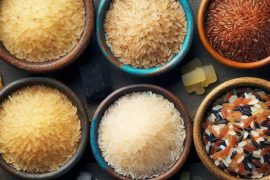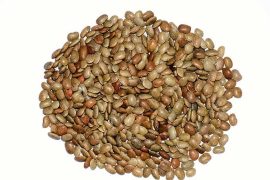Chia seeds are undeniably packed with nutrients, making them a popular addition to many diets. They are rich in fibre, protein, omega-3 fatty acids, calcium, magnesium, and antioxidants, and they’re also low in calories. Just 2 tablespoons of chia seeds provide about 10 grams of fibre, which is nearly 35% of the daily recommended intake. The fibre in chia seeds promotes digestion, reduces cholesterol, and helps keep you feeling full for longer. The omega-3s, particularly ALA (alpha-linolenic acid), are known for reducing inflammation and supporting heart health. Given these health benefits, chia seeds are often regarded as a superfood and are commonly added to smoothies, puddings, and health bowls.
Despite their many benefits, chia seeds should not be consumed in excessive amounts every day. The high fibre content can cause digestive issues if consumed without proper hydration. Chia seeds are highly absorbent and can soak up to 10–12 times their weight in water. Without adequate hydration, consuming chia seeds can lead to bloating, gas, or even constipation. It’s essential to soak chia seeds or drink plenty of water with them to prevent discomfort. Overconsumption can also cause problems for individuals with sensitive stomachs or those prone to digestive issues.
People Who Should Be Cautious About Daily Chia Seed Consumption
1. People on Blood Thinners
Chia seeds are rich in omega-3 fatty acids, which are known for their heart-healthy properties and their ability to reduce clotting risks. However, for individuals already taking blood-thinning medications like warfarin or aspirin, consuming chia seeds daily can further slow blood clotting, increasing the risk of bruising or bleeding. Those on blood thinners should consult their healthcare provider before making chia seeds a regular part of their diet.
2. People with Low Blood Pressure:
While chia seeds can help manage high blood pressure by supporting healthy blood pressure levels through their omega-3s and potassium content, they can be problematic for individuals who already have low blood pressure. Regular consumption of chia seeds could lower blood pressure further, potentially causing dizziness, fatigue, or other symptoms related to low blood pressure. If you have low blood pressure, it’s important to monitor the effects of chia seeds on your health and consult a doctor before adding them to your daily diet.
3. Individuals on Blood Sugar-Lowering Medications:
Chia seeds can be beneficial for people with diabetes due to their ability to regulate blood sugar levels and their low glycemic index. However, chia seeds can amplify the effects of blood sugar-lowering medications, which may lead to hypoglycemia (low blood sugar) if not properly managed. People with diabetes should be cautious and consider adjusting their medication doses if they plan to incorporate chia seeds into their daily routine. Consulting with a healthcare provider is essential to avoid potential complications.
4. People with Digestive Sensitivities:
Chia seeds are known for their high soluble fibre content, which, while beneficial for digestion, can also lead to digestive discomfort if consumed in large amounts or without adequate hydration. The seeds can absorb a significant amount of water, and if not soaked beforehand or accompanied by sufficient fluids, they can cause bloating, gas, and constipation. Those with sensitive digestive systems or conditions such as irritable bowel syndrome (IBS) should approach chia seeds with caution and avoid daily consumption without proper preparation.
5. Pregnant or Breastfeeding Women:
While chia seeds are a good source of nutrients, pregnant or breastfeeding women should avoid consuming excessive amounts due to the potential effects on blood pressure and blood sugar. Since chia seeds have the ability to lower blood pressure and regulate blood sugar, they may interfere with the body’s natural processes during pregnancy or breastfeeding. Moderation is key, and it’s important to consult a doctor before incorporating chia seeds into a daily diet, particularly during these sensitive periods.
While superfood chia seeds offer numerous health benefits, including improving heart health, digestion, and weight management, it’s important to consume them mindfully, especially if you have any pre-existing health conditions. The high fibre content and ability to absorb large amounts of water require proper hydration, and chia seeds should be consumed in moderation. If you have concerns regarding medications or existing health conditions such as low blood pressure, diabetes, or digestive issues, it’s essential to consult with a healthcare provider before making chia seeds a daily habit.
Disclaimer:
The information contained in this article is for educational and informational purposes only and is not intended as a health advice. We would ask you to consult a qualified professional or medical expert to gain additional knowledge before you choose to consume any product or perform any exercise.







